Former NATO Staff Member joins Aba Al-Sadiq's Community
- James Pollard

- Jul 17, 2025
- 10 min read
Updated: Sep 1, 2025

As part of our Professional Profiles series, we highlight members of AROPL with accomplished careers and expertise, showing how their professional paths led them to join the community of Abdullah Hashem.
Beyda Kassem is a former NATO staff member from Germany. She left NATO to join the community surrounding Aba Al-Sadiq at Webb House — and this is her story.
Please tell us about your upbringing and who you are.
I'm Beyda, 40 years old, born and raised in Germany, with roots in the Turkish city of Denizli. From the very beginning, my life has been a balancing act between two worlds – the discipline and clarity of German culture on one side, and the warmth and emotional depth of my Turkish heritage on the other. Today, I’d say I carry both within me: a German backbone and a Turkish heart.
I've never been someone who just goes with the flow. I’ve always asked questions, always searched – for justice, for meaning, for what connects people rather than divides them. That search has taken me through many different chapters – from refugee aid to serving in the German military, and ultimately to a deep spiritual path.
If I had to sum up my life in one sentence, it would be this: I’m someone who never stopped believing in goodness – in people, and in something greater. Humanity first – and God in my heart.
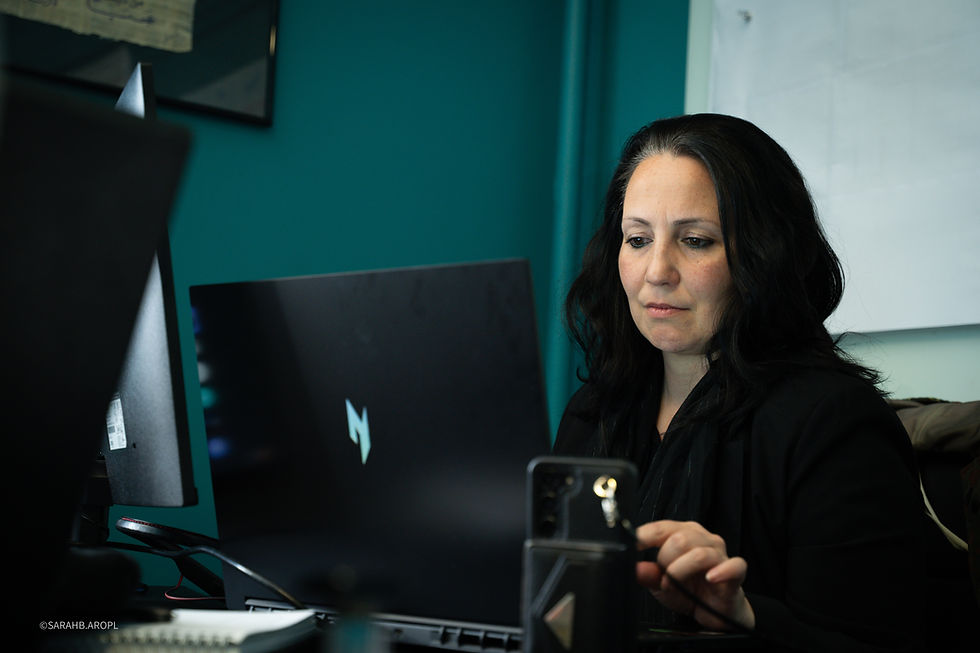
You mentioned a deep inner search – for justice, meaning, something higher. When did that begin for you? Was there a specific moment that triggered it?
Honestly, it started pretty early. My parents divorced when I was still a child. Back then, especially in the Turkish community, that was almost unheard of – a kind of taboo. Suddenly, there was this pressure from all sides. People didn’t say it out loud, but you could feel it: What good can come from the children of a broken home? The daughter ends up on the street, the son in jail – that was the kind of narrative floating around.
I grew up with that expectation hanging over me – and I wanted to prove the exact opposite. I wanted to break that cycle. I wanted people to stop judging and start supporting each other, especially in tough times. But that wasn’t what I experienced – not culturally, and not socially. And that’s really when my search began: for a community that holds you up instead of tearing you down. For a faith that doesn't exclude. For a space where you don’t have to perform – where you’re simply allowed to be human.
What made you start working in the Germany army, and what was your role there?
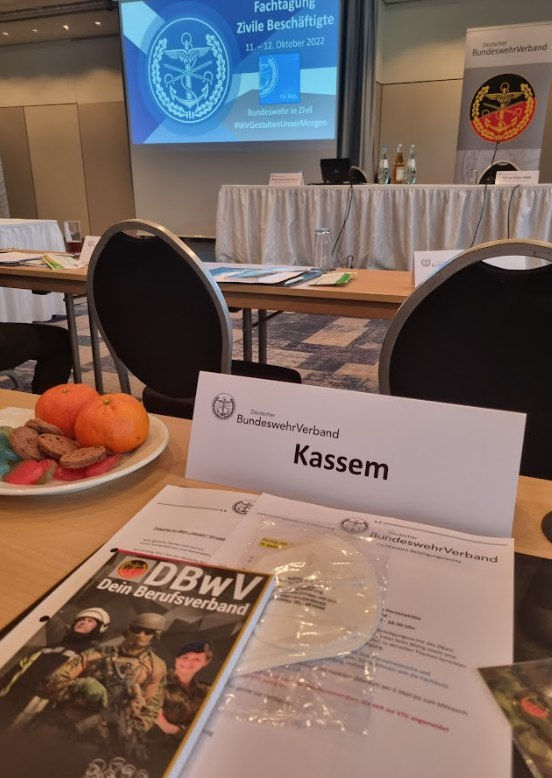
I had already worked in the private sector – and honestly, it didn’t sit right with me. I was good at what I did, but at the end of the day, I was helping some manager make more money – money that didn’t help society, didn’t change lives, didn’t mean anything. I wanted to do something that had a bigger purpose. I wanted to be part of something that, at least on paper, was about protecting people.
That’s what drew me to the Bundeswehr. The official mission was clear: defense, protection, service. That fascinated me. It felt like there was meaning in it. And I also found something there that truly touched me: the camaraderie, the sense of unity, teamwork, shared responsibility. In many ways, it reminded me of what I later found in my spiritual community – but of course, the mission was different.
My role was as an executive secretary in a NATO-related division. I worked closely with high-ranking officers, managed sensitive documents, coordinated international communications, and was part of the organizational backbone that keeps the military running. It was demanding, structured, and deeply tied into global politics – which made it fascinating, but also challenging in a different way.
You’ve lived many lives – activist, humanitarian, NATO secretary, politically engaged woman. But what connects all of that? What kept pushing you forward – through all these phases and challenges?
I think what always pushed me forward was a deep need for meaning – not the kind you read about in books, but the kind you live through action. I’ve never been the type to just sit and analyze problems. I’ve always wanted to be on the ground, to do something, to make a real difference in people’s lives. Whether I was supporting refugees, working inside a military structure, or engaging in politics – I was always driven by the same question: Where is the truth in all this? Not just truth in facts, but truth in values. In purpose. In humanity.
Looking back, I realize that systems can give you tasks, but they don’t give you real answers. That came later – on a spiritual level. But everything before that was preparing me for it. Every challenge, every contradiction, every moment of feeling out of place – it all shaped the person I’ve become. And that person was ready to recognize the truth when it finally showed up.
Out of all the projects you’ve been part of – is there one that truly stands out for you?
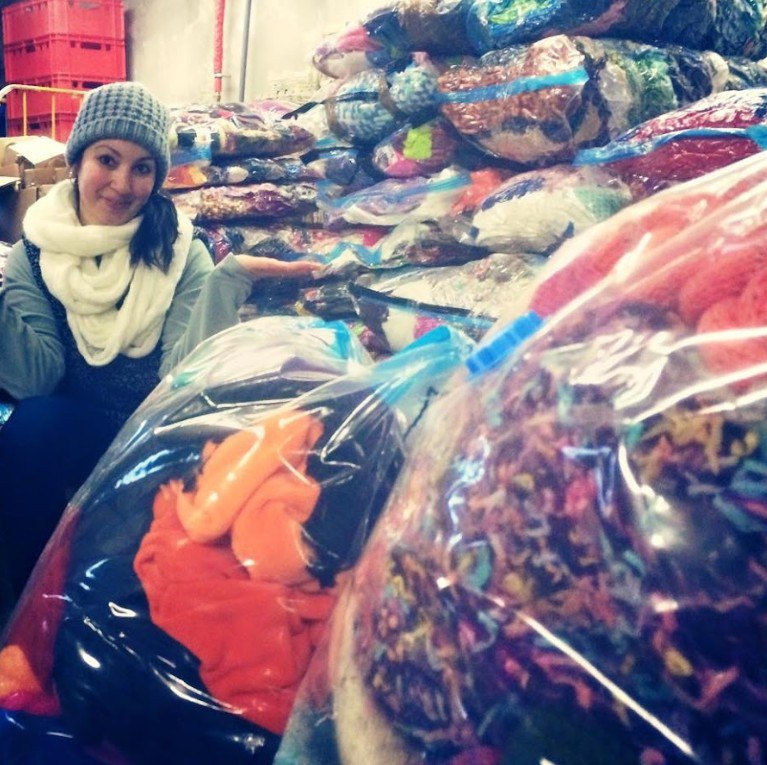
Yes – without a doubt. The project “With Wool and Needles Against Terror” will always hold a special place in my heart. It brought together two sides of me: the part that wants to act with compassion, and the part that isn’t afraid to challenge social norms.
On one hand, we were sending handmade winter items – scarves, hats, blankets – to refugee camps in Iraq, Turkey, and elsewhere. On the other hand, in Germany, something incredible happened: people came together. We suddenly had over a thousand volunteers across the country – knitting, donating, transporting supplies. The media picked it up. We became known as the “wool army.”
But the project wasn’t just about warmth. It became political – not by intention, but by reaction. Much of the aid went to Kurdish and Yazidi families fleeing ISIS. And that didn’t sit well with everyone. I remember getting comments online – even from within my own family – like: “Why are you helping Kurds? Are you one of them now?” It was absurd, and painful. But it also made my position clear: I don’t help people based on identity. I help because they’re human.
After three years, the mood in Germany also shifted. The initial solidarity with refugees started to fade. People began saying things like, “We need to help ourselves first,” and political narratives began to change. You could feel the early rise of what would become the far-right movement in Germany. After four years, I made the decision to end the project formally – but many of the knitting groups that were born from it still exist. They now support local hospitals, shelters, and the homeless. So even if the project no longer exists as an organization – the spirit of it lives on.
You said earlier that real answers didn’t come from systems – they came later, on a spiritual level. Can you tell us about that turning point? How did you discover the Ahmadi Religion of Peace and Light, and what made you feel: This is the truth I’ve been looking for?
I first came across Abdullah Hashem back in 2008, during the time of The Arrivals. I was still a young woman – but it was a powerful period in my life. We were the generation that watched 9/11 unfold live on TV. It shaped us. We witnessed how the world changed after that – politically, spiritually, socially.
The Arrivals opened my eyes. I wasn’t deeply religious at the time, but I was always searching. The series introduced me to ideas that stayed with me for years – and some I ended up testing in my own life. Not all of it was easy. But yes, the world we live in really does resemble something like The Matrix.
Then many years passed. I lost track of Abdullah Hashem and focused on my own journey. Spiritually, I moved far from organized religion. I started believing in concepts like karma, reincarnation, energy, frequencies, the Holy Spirit, even quantum physics. For me, God was always good – and humanity always came before any religious label. And then one day, it was actually my brother-in-law – the same person I had once shown The Arrivals to – who came back to me and said: “You have to see this.” I asked him, “Okay, if he’s really the Mahdi – what is his message?” He said: “Humanity First.” That hit me. Because that wasn’t just a slogan – it was something I had been living for years. But I didn’t stop there. I went deep. I started researching the Ahmadi Religion of Peace and Light in detail. I watched the sermons, read the writings, checked every source I could find. And what surprised me the most was how much of it reflected things I had already come to believe on my own – through years of study and experience. And then there was even more – insights, knowledge, a structure that made spiritual sense in a way no other religion ever had for me. It wasn’t blind faith. It was discovery. And recognition.
What happened after you accepted the truth? How did it affect your inner world – your sense of purpose, peace, or direction in life?
At the time, I was still working within the German Bundeswehr. And honestly – discovering the truth felt like a punch in the gut. Not because it hurt, but because it revealed something I could no longer ignore. I realized I was part of a system that claimed to defend peace, but in reality, the decisions – were made with very different motivations.
And then I went to visit Aba Sadiq – and the community around him. That changed everything. For the first time, I saw what I had been searching for my entire life: People who are kind. Who don’t judge. Who live in peace. Who share without ego. It was real. It existed. And in that moment, I made a choice. I had spent years supporting a NATO general. Now I was ready to follow a spiritual general. One who fights with light, not weapons. One whose mission is not war, but truth, justice, and unity. That was the beginning of my real service. And it felt like coming home.
Was it difficult to leave your job in the Bundeswehr?
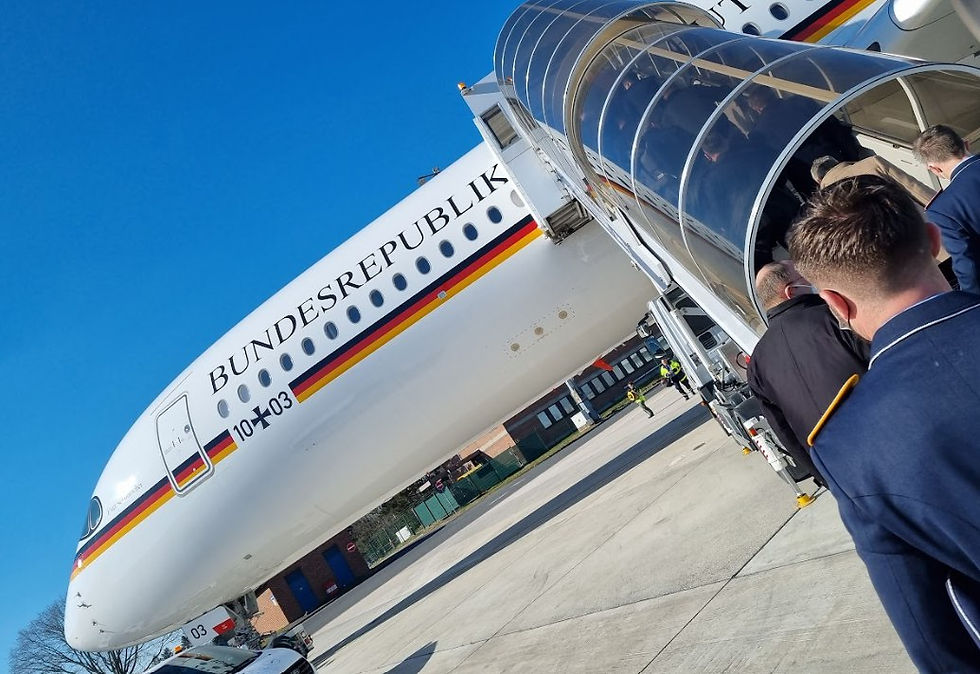
In some ways, it wasn’t difficult at all – because I had found something greater. What Aba Sadiq built gave me a clear and powerful alternative. It wasn’t just another belief system – it was a whole new mindset, one that put humanity and divine purpose at the center.
But of course, there was another side to it. I was leaving a stable job, a defined career path, and stepping into something completely unknown. There were no guarantees. No contract. No roadmap. Just faith.
But I trusted in God – and I made the conscious decision to trade a worldly general for the one appointed by the Divine. And I was not disappointed.
Now, I’m part of something that goes far beyond national borders. I get to support projects through NGOs, humanitarian partnerships, even UN-level efforts – things that don’t just help people in Germany, but reach communities all over the world.
I work for the rights of women, children, the oppressed, the displaced, the persecuted – anyone whose voice has been silenced. I love being involved on an international level – collaborating with organizations like the UN, Amnesty International, and others who are genuinely trying to make this world more just, more human, more compassionate.
That’s where I feel I belong – and that’s where I can serve best.
Some people believe that only weak, naive, or lost individuals follow spiritual paths like this – especially when it comes to new or alternative religions. As an educated woman with real-world experience, what would you say to them?
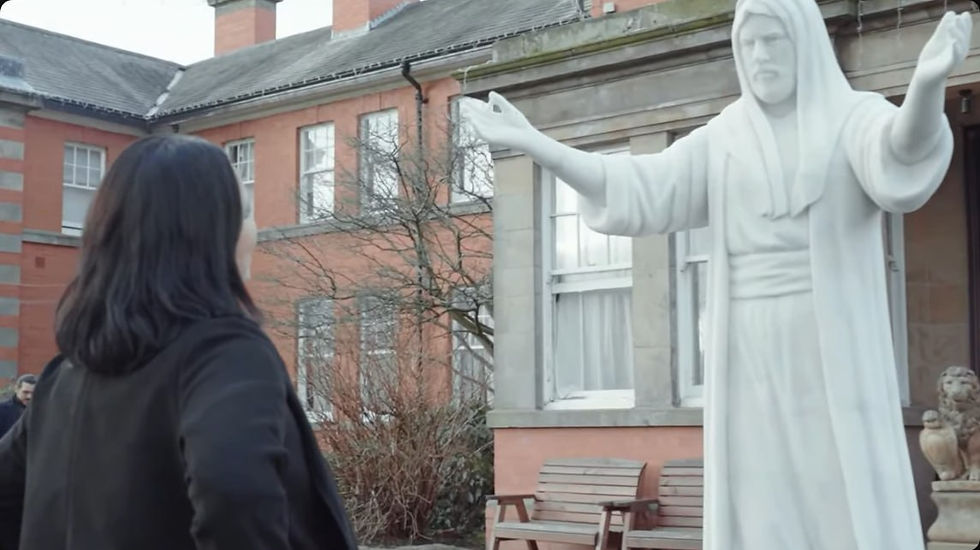
I would say: you clearly don’t know what real strength looks like. It’s easy to follow the mainstream. It’s easy to stay in systems where you’re told what to believe, how to live, and what truth is – even when it doesn’t sit right in your soul. What’s hard is to question it. To walk away from it. To unlearn what you were taught, and go searching – really searching – for something real.
I didn’t choose this path out of confusion or weakness. I chose it because I had the strength to look the world in the eye and say: This is not enough. I need truth. I’ve worked in military systems. I’ve been inside politics. I’ve seen how things work behind the curtain. I didn’t “fall into” faith – I fought my way toward it.
This path demands everything from you: honesty, discipline, clarity. And it gives you something the world can’t: peace, truth, and a direction worth living and dying for. So no – this path isn’t for the weak. It’s for those who are strong enough to start over.
What does this faith give you now, in your daily life – as a woman, as a mother, as someone who still believes in changing the world?
Beyda: It gives me peace – real peace. Not the kind you get from pretending everything is fine, but the kind that comes from knowing who you are, why you’re here, and where you’re going. As a mother, it gives me clarity. I don’t raise my children with confusion or fear anymore. I raise them with purpose. I know what values I want to pass on. I don’t just teach them to survive – I teach them to live with integrity, with courage, with compassion.
As a woman, it gives me strength. The world tries to define women by roles, by looks, by limitations. But in this faith, I found freedom. I don’t need to prove anything. I stand where I stand because God put me here – and I walk this path with dignity and direction.
And as someone who still believes the world can change – this faith gave me a blueprint. A real, practical, spiritual system that puts justice, truth, and humanity above everything else. I spent years trying to fix the world from the outside. Now I know: real change starts inside. And this path gave me both the tools – and the heart – to keep going.
If you could leave the readers with one message – one truth you’ve discovered – what would it be?
Don’t be afraid to question everything – even the things you were taught to never touch. Truth doesn’t fear questions. Systems do.If something is real, it will survive your doubts. It will grow stronger through your honesty. I’ve learned that faith is not about following rules. It’s about recognizing truth – even when it comes from unexpected places. Even when it costs you comfort, relationships, or certainty.
You don’t need to be perfect, or pure, or ready. You just need to be sincere. And if you truly seek the truth – with humility, with courage – God will show it to you. He always does.



This was a truly beautiful article and so very relatable. Thank you for sharing your journey with us. God bless you ♥️
God bless you my dear family
Eine gesunde Gesellschaft besteht aus starken Männern und starken Frauen!
Very inspiring 👏